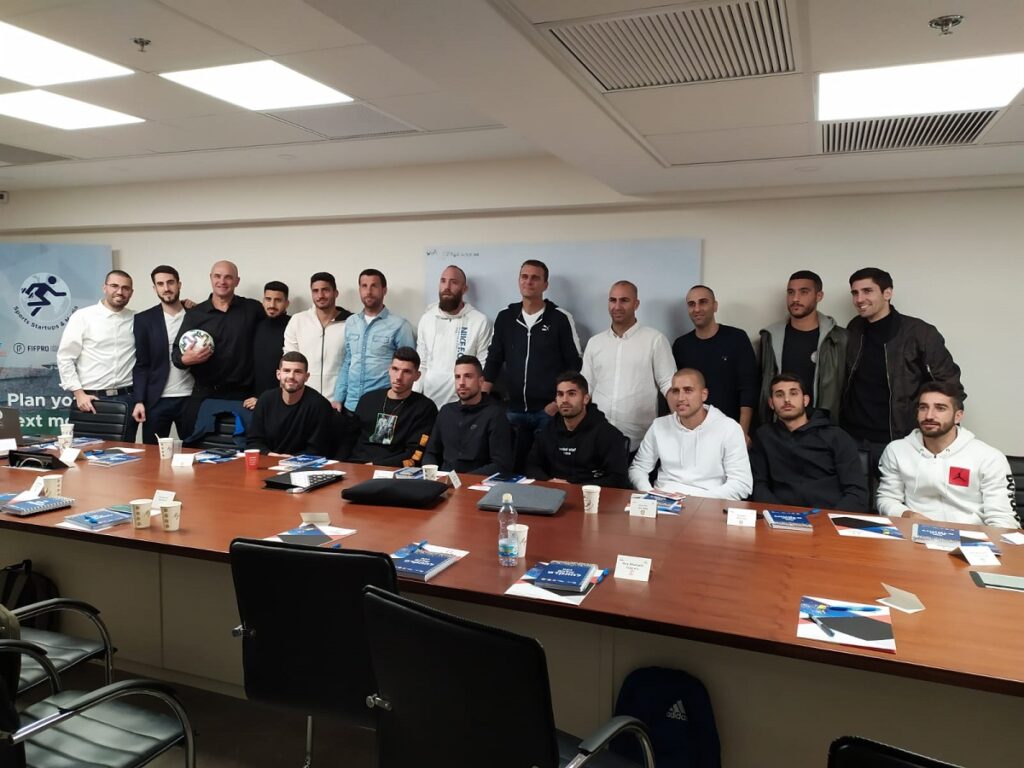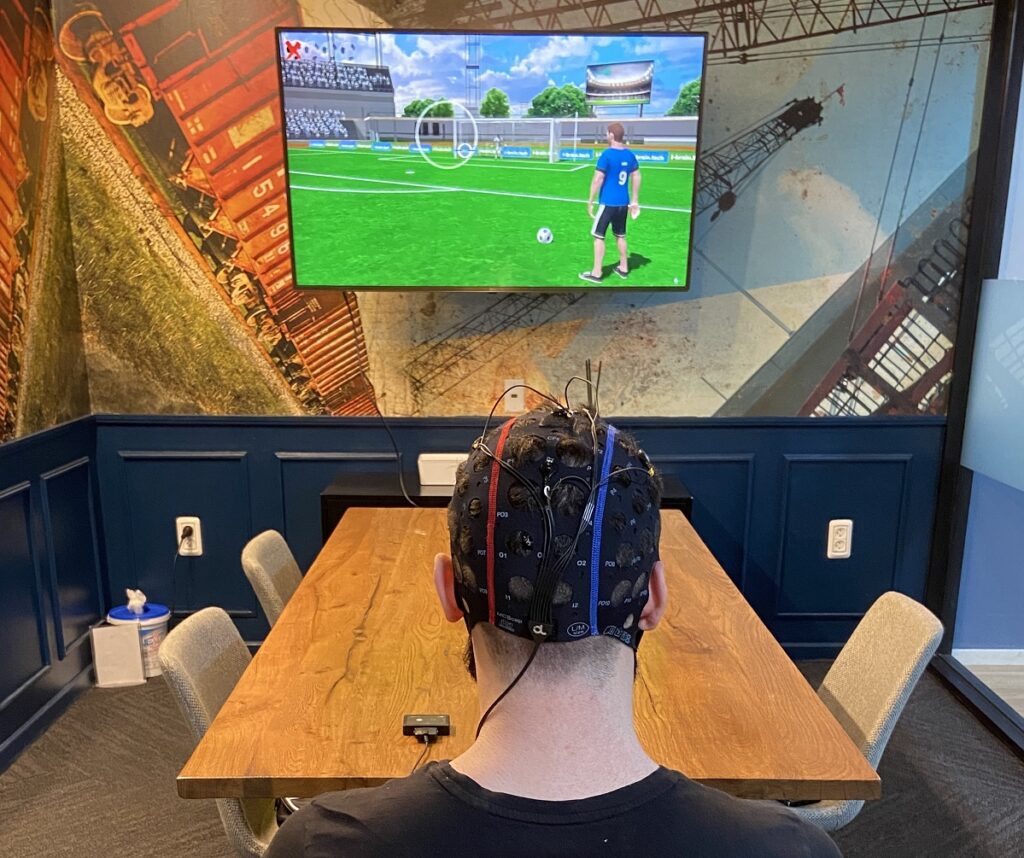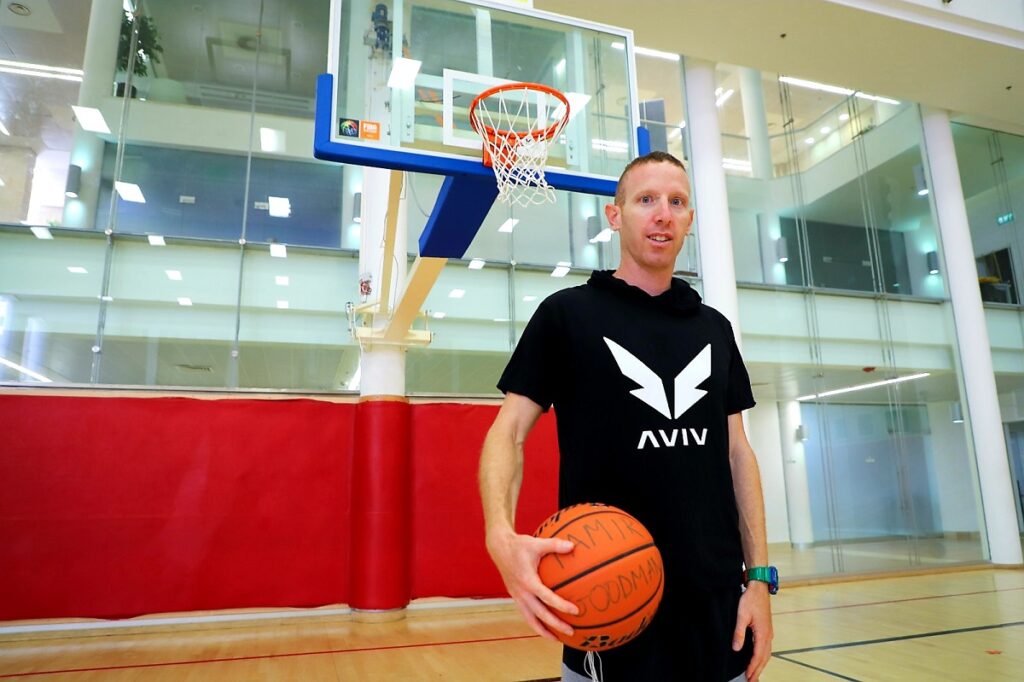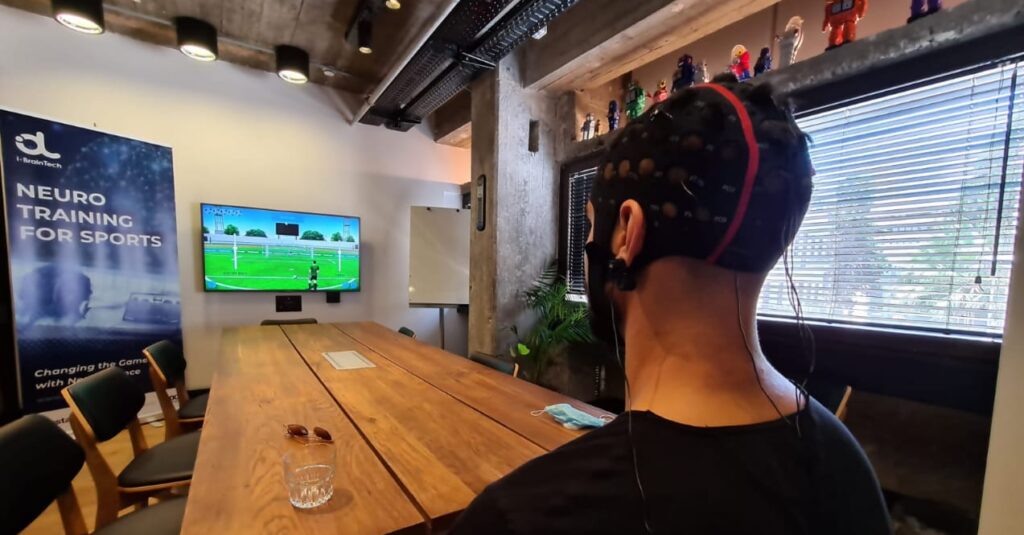Israeli athletes are taking their passion on the field to forward-thinking off the field as they join a growing trend of global players tapping into innovation, tech-centric startups, and tech-related investments. In fact, there are over 600 sports-related tech startups in the country today, making Israel among the “biggest sports tech communities.”
“In 2018, we launched the STN- Sports Tech Nation, with a vision to position Israel as a sports tech nation — and it’s working,” Oren Simanian, founder of Israel-based Colosseum international sports innovation group, tells NoCamels.
The Sports Tech Nation is a yearly event that was started by Colosseum “with a vision to position Israel as a sports tech nation”, Simanian tells NoCamels in a Zoom interview. “Last year we had about 5,000 participants both online and in person. This year’s event in November will host delegations from all over the world- pavilion-style- from the leading sports nations and countries.”
Israel’s forte in the innovation space has drawn international interest.
“We are one of the biggest sports tech communities,” Simanian says. “We have relationships with over 12,000 sport and tech leaders- from the NFL to the UEFA and FIFA. In addition, we have investment activities in the seed stage of up to $100,000, and we also do consulting for sports-related corporations and organizations,” says Simanian.

Globally, the day after for many athletes has become an amalgamation of sports and technology. In Israel, this same trend of professional athletes investing or innovating better sports solutions is a growing phenomenon.
There’s three-time Olympic swimmer, Gal Nevo, who co-founded SenSwim, an AI video analysis system that helps create swimming workouts for amateurs and professionals through its computer-vision technologies.
Other local athletes are working to improve goalie reaction times, better athletic performance through neurofeedback, and keep basketball nets bacteria-free, among other innovations.
“Our organization puts an emphasis on the day after,” Moshiko Mishaelof, former professional soccer midfielder and CEO of the Israeli Football Players Association (IFPO), the official footballers’ union of Israel, tells NoCamels in a Zoom interview. “Athletes make a lot of money in a short, specified period of time, and at the age of 33-35, they reach retirement. We help these players prepare for the time after retirement.”
Founded in 2013, the 1,000-strong organization offers financial classes and academic programs. But its partnership with Colosseum is its most innovative program as it combines athletes’ knowledge, experience, and discipline, with the country’s tech sector.
Media and Startups is one popular course, and it teaches professional athletes about the world of sports tech. Through it, many pro-athletes are introduced to sports companies and often contribute to the research and development of these new sports technologies.
Colosseum helps Israeli sports tech startups get off the ground by providing seed-stage funding of up to $100,000 as well as by providing a “tech community” that can share ideas. At the same time, the company helps improve athletics in Israel by developing technologies that contribute to athlete training and performance.

“The goal of our sports technologies is to democratize sports and allow young players to get exposure. The second goal is in terms of their expertise – by turning them into professionals mentally, physically, and in all aspects that are related to being a pro,” says Simanian, VP of Business Development, and a former soccer referee.
But the IFPO doesn’t end with financial advice and support groups. Mishaelof explains that the organization is trying to increase the players’ involvement in tech and innovation in their post-career lives, as well.
Sign up for our free weekly newsletter
Subscribe“Athletes have an extremely high level of discipline which high tech companies like,” Mishaelof says. “In addition, our minds take on the perspective of being on the field in real-time which contributes to ideas that the average person on the outside just wouldn’t think of.
“I see a lot of new technologies such as athlete performance or sports cameras and sensors that are asking for our advice or taking players from our organization in order to improve their technologies. Currently, we have sent our own players to contribute to a pilot technology from FIFA in order to identify concussions through an app in under three minutes.”
Another example is i-BrainTech, which uses an AI-based training platform to enhance the performance of individual athletes using data insights. The company also leverages “professional players for feedback,” Mishaelof says.
I-BrainTech improves athletic performance through neurofeedback training. In addition to physical training, athletes train their brains by doing the same repetitive actions thousands of times. By playing a VR type video game entirely with their minds, athletes can enhance their athletic performance and accelerate their return to the field.

“We encourage players to work with them, because not only does it improve their performance, but players are also the only ones who really know what happens on the field,” Mishaelof says.
Tamir Goodman, once dubbed the “Jewish Jordan” due to his talent as a top 25 high school basketball player in the US, knows the ins and outs of basketball better than just about anyone.
Like so many others during COVID-19, the former Maccabi Tel Aviv player used the changing policies and the disruptions from everyday life as his inspiration for innovation.
“I always loved basketball, I always will love basketball, and it will always be a part of my life,” Tamir Goodman tells NoCamels in a Zoom interview. “I love helping players and giving back to the game that I love.
“During COVID-19, I was running basketball camps, and the Health Ministry told us that we can’t pass the ball [due to bacteria] so every player has to bring their own ball. I thought to myself, ‘I can’t believe we got to a point in life where we can’t pass the basketball!’ But then it hit me. Why don’t we use the net as a cleansing device?”

Goodman’s innovative anti-bacterial basketball net, the Aviv Net, solves two problems at once: The age-old problem of ball control due to sweaty hands or wet surfaces, along with the new challenge of bacteria on the ball due to Covid-19.
“We make the net from zero,” Goodman says. “We have a patent-pending recipe of incredible materials- yarns and fabric- that we put together in a certain way that combines both actions of drying and cleaning the ball from bacteria.”
The idea for the Aviv Net was born a little over a year ago but has already seen tremendous success in this short period of time. The net was first used in a professional game in October between Hapoel Jerusalem and Turkish club Pınar Karşıyaka. After the successful FIBA tournament debut in Jerusalem, the net made its first appearance in the United States in a Baltimore area CIAA College Basketball tournament. In both cases there was extremely positive feedback from the players.
“My passion to help the next generation of players is really what fueled me,” Goodman says. “I think it was because my career got cut short because of injuries and I experienced struggle and challenge and setback so much. For a part of me, it’s really healing to say ‘ok my career got cut really short, What can I do to help the next generation of players?’”
Related posts

Editors’ & Readers’ Choice: 10 Favorite NoCamels Articles

Forward Facing: What Does The Future Hold For Israeli High-Tech?

Impact Innovation: Israeli Startups That Could Shape Our Future




Facebook comments